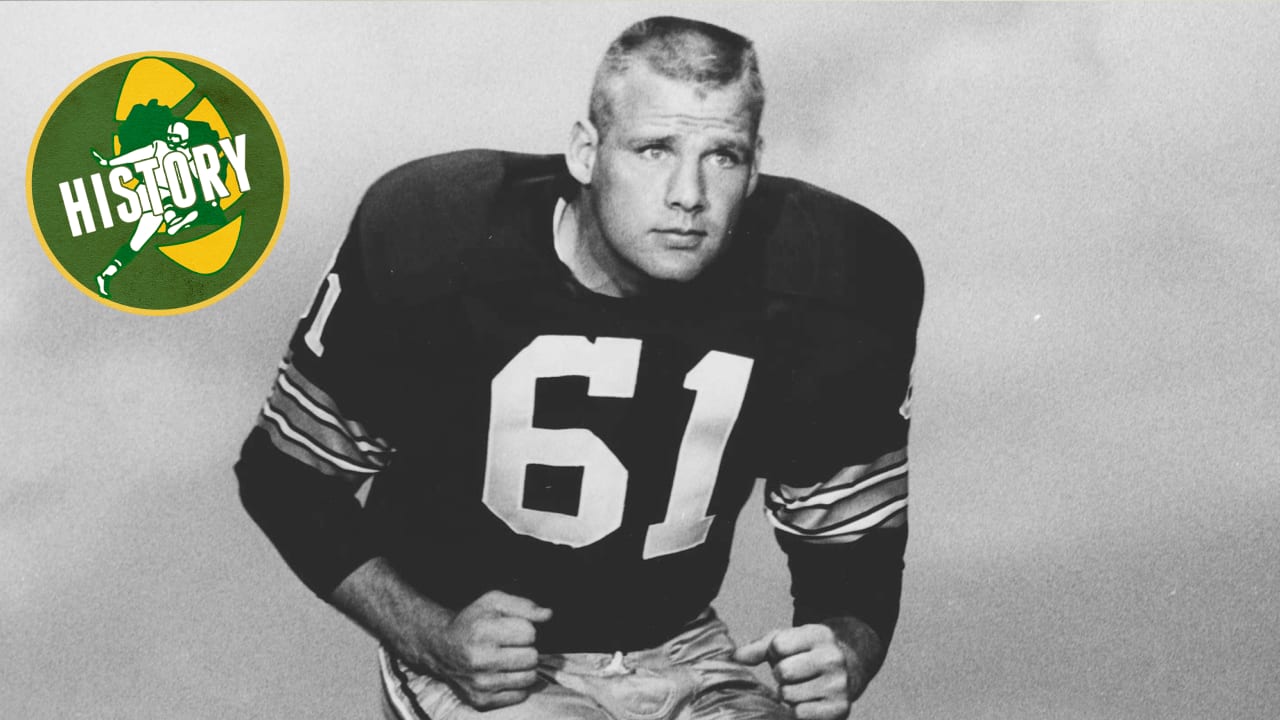Cheesehead
Well-known member
- Mar 19, 2019
- 2,854
- 0

On Nov. 18, 1962, Nelson Toburen, a promising second-year linebacker, broke his neck in one of the most frightful injuries in the now 63-year history of Lambeau Field. Selected in the 14th round of the 1961 NFL Draft, Toburen made the Packers as a fifth linebacker as a rookie and then became the top sub at all three linebacker positions in 1962, following the trade of veteran Tom Bettis. Toburen made his first pro start in the game in which he got hurt, subbing at left linebacker for an injured Dan Currie. The Packers were 9-0 at the time and beat the Baltimore Colts, 17-13, that afternoon at what was then Green Bay City Stadium. Toburen's career-ending injury occurred in the fourth quarter. Otherwise, he might have become a starter on Vince Lombardi's last three NFL championship teams. "Nelson Toburen was a great guy and athlete who had all-pro potential as a linebacker on the left side," former teammate and Pro Football Hall of Fame cornerback Herb Adderley once said. Toburen played collegiately at Wichita State, where one of his teammates was Bill Parcells. Bill Austin, Lombardi's line coach from 1959-64, was one of Toburen's coaches there in 1958.
On the play where he sustained his injury: "I remember the game was close and (John) Unitas went back to pass. I went into the left flat and we were protecting what I remember as the north goal. Unitas took off running right around the 50-yard line and I thought, 'I've got to make this guy fumble.' That was my specific intent – to strike as hard as I could. And I did. It's just that I hit him wrong. The back or top of my helmet hit him in the hip, which is probably the most solid part of the body."
On what he remembered next: "I made the hit and the next thing I knew there was lots and lots of pain in my arms. I didn't know why, but I couldn't move. It was the damndest pain I ever had. I remember the orthopedic, Dr. (James) Nellen, holding my head all the way to the hospital in the ambulance."
On whether he ever lost consciousness: "I was never unconscious. But the arm pain was unbelievable. I had no idea what was wrong. I just knew my arms were on fire. Thank God for Dr. Nellen. I sincerely believe if he hadn't been there, I wouldn't be walking today."
On whether he lost feeling anywhere: "I don't know. I know my arms were on fire. The brachial plexus comes down through that area, the nerves of the arms, and those nerves were extremely traumatized and I was in excruciating pain."
On any specific recollections as he was lying on the field: "I don't know (how long I was there). The trainer said I had a pinched nerve and told me I could get up. I knew I couldn't. Dr. (Eugene) Brusky may have been there, as well. The thing I remember was Dr. Nellen taking my head, holding it at a certain angle and position very rigidly, and that relieved the pain in my arms. They took me on a stretcher with him holding my head, clear to the hospital and until they got me in traction."
On when his injury was diagnosed: "It took a couple of days for them to figure out what was wrong with me. They kept shooting X-rays through the side and it would show my shoulders. Finally, they pulled them down and got an X-ray that showed all that. Nellen put me on an iron frame and put all that stuff back in place. I was in traction for three days. They didn't have to do surgery, but it was a long time in the cast."
On his hospital stay: "I was taken directly to St. Vincent Hospital and spent four to six weeks there. I wore a body cast from my waist clear up to around my chin. My head was shoved way up in the air for a long time. Then I wore a neck brace for a number of weeks. I went to New York for the championship game."
On when he learned his career was over: "I came back for X-rays or whatever, and Dr. Nellen took me to the cafeteria and drew me a picture and said, 'Nelson, there is no way you can ever play again.' It was during my recuperation."
On how well he accepted his verdict: "I didn't have any choice. I went all over the Fox River Valley area looking for an orthopedic surgeon who would tell me I could play. A 23-year old kid doesn't know any better. I went back to law school in May 1964, from Green Bay. Even then, when I ran out of money, I thought I'll get an orthopedic surgeon to tell me I can play again. I tried but I couldn't."
